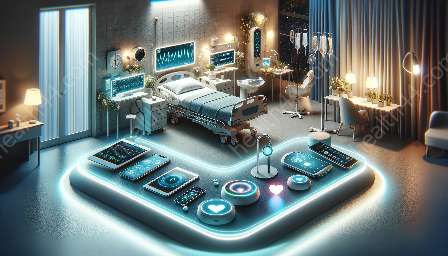An electrocardiogram (ECG) is a vital tool in patient monitoring, providing essential data for diagnosing cardiac conditions and analyzing heart function. ECG devices are integral parts of medical devices and equipment, playing a crucial role in modern healthcare technology.
Understanding Electrocardiogram (ECG) Devices
ECG devices are used to record the electrical activity of the heart over a period of time. By capturing the electrical impulses generated by heart muscle depolarization, ECG devices create an ECG graph that reflects the heart's rhythm and electrical conduction. This non-invasive, painless procedure is commonly used to monitor heart health and detect abnormalities or irregularities in cardiac activity.
Functionality and Components
ECG devices typically consist of electrodes that are placed on the patient's skin, a cable system to connect the electrodes to the main unit, and the main unit itself, which records and displays the ECG waveforms. Modern ECG devices often include advanced features such as wireless connectivity, portability, and integrated software for data analysis and interpretation.
Integration with Patient Monitoring Devices
ECG devices play a crucial role in patient monitoring systems, as they provide real-time cardiac data that is essential for monitoring patients' heart health in various healthcare settings. Integrated with patient monitoring devices, ECG data can be continuously monitored and analyzed, alerting healthcare providers to any irregularities and enabling timely intervention.
Role in Medical Devices and Equipment
As an essential component of medical devices and equipment, ECG devices are incorporated into various cardiovascular diagnostic tools, including Holter monitors, stress testing equipment, and cardiac event recorders. These devices allow for comprehensive cardiac evaluation, aiding in the diagnosis and management of heart-related conditions.
Benefits of ECG Devices
The use of ECG devices offers several benefits in patient care and medical diagnostics. These include:
- Early detection of cardiac abnormalities and arrhythmias
- Monitoring of cardiac function during medical procedures and surgeries
- Assessment of the effectiveness of cardiac medications and treatments
- Long-term monitoring of heart rhythm in patients with chronic cardiac conditions
- Integration with telemedicine platforms for remote cardiac monitoring
Interfacing with Modern Healthcare Technology
In the rapidly evolving landscape of healthcare technology, ECG devices are continually adapting to interface with other advanced medical devices and systems. The integration of ECG data with electronic health records (EHRs), telemedicine platforms, and cloud-based analytics enables seamless communication and data sharing, facilitating comprehensive patient care and medical decision-making.
Future Developments and Innovations
Ongoing advancements in ECG technology are focused on enhancing the accuracy, portability, and connectivity of ECG devices. Innovations such as wearable ECG monitors, AI-driven ECG analysis, and ECG-enabled smart devices are revolutionizing the way cardiac data is collected, analyzed, and utilized in healthcare.
Conclusion
ECG devices are indispensable tools in patient monitoring and medical diagnostics, providing valuable insights into cardiac function and rhythm. Their integration with patient monitoring devices and modern healthcare technology ensures that crucial cardiac data is accessible, interpretable, and actionable, ultimately contributing to improved patient outcomes and enhanced medical care.


